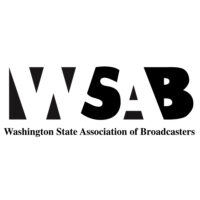
Local media leads truth and accuracy in Washington state in a recent statewide media study, conducted by SmithGeiger for the Washington State Association of Broadcasters (WSAB). Based in Los Angeles, SmithGeiger’s research for WSAB underscores the enduring relevance of local radio and television broadcasters across the state, despite the rise of on-demand content.
Keith Shipman, President & CEO of the WSAB, expressed satisfaction with the findings. “It’s gratifying to see the majority of our state’s citizens recognize local television and AM/FM radio as leading the media landscape in truthfulness and accuracy. With local TV securing the top spot for trust and accuracy at 62%, and AM/FM radio following closely at 57%, it underscores their pivotal role in our information ecosystem. Additionally, local newspapers are highly regarded among all media sources, further emphasizing the value of local journalism.”
Key Insights from the First-Ever WSAB Statewide Media Landscape Study:
Local radio (AM/FM) continues to lead as Washington state’s preferred audio platform, with daily usage surpassing 5 hours across various devices—including in-car, digital, mobile, and social platforms marking a +34% increase over paid audio. The widespread availability of radio content on diverse platforms has greatly improved access, leading to increased engagement with local AM/FM stations. Notably, 77% tune into terrestrial radio, with 63% listening in their cars; 52% stream AM/FM radio, while 27% access it via their smartphones.
Local television holds the top spot as Washington state’s preferred video platform, with an average daily viewership of nearly 4.5 hours across linear, digital, and social channels—outpacing paid video platforms by +40%.
Local television and radio advertisements play crucial roles in introducing new products and services, capturing 48% and 33% of consumers respectively. This highlights the significant impact of both platforms, with television ads slightly leading and radio, especially talent-endorsed spots, closely following as key discovery sources.
Support for local journalists, who report on community news, is deemed important by more than half (52%), highlighting the substantial impact of local radio and television stations on consumer sentiment.
Netflix, Amazon Prime, and Hulu rank as the leading subscription-based video services in our state, with significant cross-subscription among these platforms. Meanwhile, YouTube, Facebook, and Instagram emerge as the top social media channels, with YouTube engaging 8 in 10 consumers weekly in Washington state.
More than 8 in 10 (84%) are registered to vote, and nearly 6 in 10 (59%) routinely seek out political news and information each week. Adults 55 and older primarily depend on national TV news (56%) and local TV (39%) for political insights, whereas those aged 18-34 lean towards social media channels not associated with local TV or radio for such information.
“The Washington Media Landscape Study will give a competitive edge to broadcasters across the state,” said Andrew Finlayson, EVP of Media Strategies for SmithGeiger. “We talked to your audiences, and they told us many important stories your local advertisers will be interested in learning more about.This research will help with setting up the important calls that can lead to a successful partnership with new businesses and deepen the relationship with existing clients.”
SmithGeiger stands as a recognized leader in analyzing local and national media audiences, having collaborated with nearly every major broadcast group and network in the United States. Their expertise spans across radio, TV, streaming, digital, and social media, focusing on audience growth and engagement strategies.
WSAB initiated this research to offer crucial insights to its members and community leaders, demonstrating the vital and lasting impact local broadcasters have in connecting with and informing their communities.
For more information on this study, contact: Keith Shipman at kshipman@wsab.org.
This story first appeared on radioinsight.com
